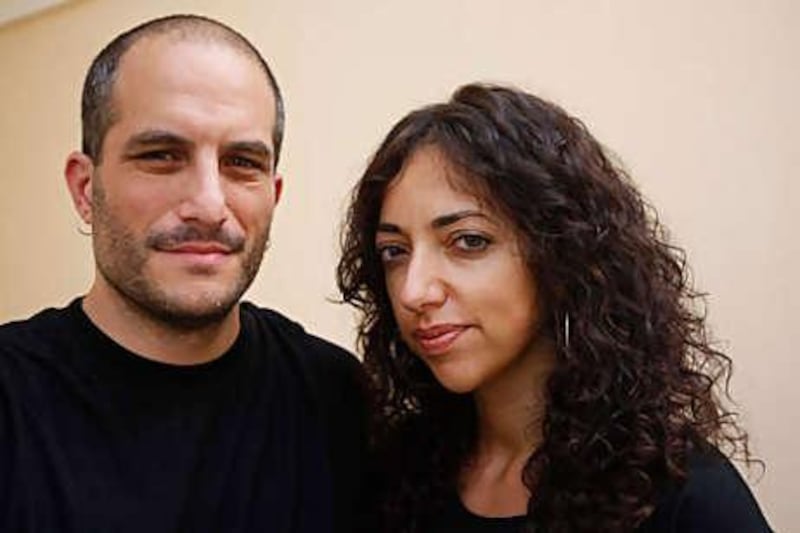DUBAI // Huwaida Arraf, a key member of the Free Gaza Movement, said the group is raising money and organising for another and hopefully bigger flotilla that would cross the Mediterranean to Gaza. "When we're ready to announce, people will know about it," she said. "But for sure it is going to be an escalation. I would love to see a boat from the UAE next time. We really want to see the Gulf, and I really would like to see the Emirates, get more involved."
An American lawyer of Palestinian descent, Ms Arraf, 34, has been part of seven attempts to challenge the Israeli naval blockade of the strip, one of the most densely populated places in the world and home to 1.5 million people. The blockade, which has been in place since 2006, has restricted not only the movement of people but also the importation of food, fuel and other goods. Free Gaza launched the first attempt to challenge the blockade in August 2008, managing to cross from Cyprus to Gaza City.
The group has since made several successful trips. Other attempts have been blocked by Israel, including the most recent attempt in May which ended in the deaths of nine people. That incident is still fresh in the minds of many in the area. Sara Yousef, 23, an Emirati interior designer, was among the many people in the UAE and around the world affected by the Israeli attack on the Freedom Flotilla.
"What happened during the raid was very unfortunate and sad," she said. "Nationals and expats should help raise awareness about what happened and educate people on what is going on. When you are aware of something, you can't really ignore it." Still, financial support for the Movement has been limited in the Emirates. Ms Arraf estimates that about US$50,000 (Dh183,650) was given by people in the UAE towards the Flotilla. A vessel paid for by Kuwaitis was among the boats that set sail in May. Hessa Saif, who lives in Ras al Khaimah, said she hoped that more would be done by people in the Emirates in the future.
With the movement encouraging grass-roots support for the next flotilla, Dr Mohammed al Roken, chairman of the UAE Jurists' Association, said people here can support the movement at a local level. "Individually, they can get in touch with the people who organised the movement and subscribe to being part of arranging the ships," he said. Over the years, the Government and local groups have provided support to the Palestinians, including billions of dirhams in humanitarian and development assistance.
"I think the Emirates is taking part in the cause by making donations through associations like the Red Crescent," said Sultan al Suwaidi, a member of the Federal National Council for Dubai. "I think it's better if the individuals contribute through official organisations instead of doing it on their own, because there are specialised people who can send contributions to the right people and place," he said.
However, assistance alone will not address the entire Gaza issue. Ms Arraf warned against reducing the occupation of the Palestinian territories simply to an issue of humanitarian aid. "Israel has created this humanitarian crisis," she said. "More than a humanitarian crisis, it's an issue of human rights and dignity. That's what we need to address." While the Free Gaza Movement were the first to organise to sail to Gaza, they have since been joined by several groups, forming the coalition that launched the Freedom Flotilla. Aboard the six-boat flotilla were hundreds of people and 10,000 tonnes of aid.
"It's not the cargo that has been the most important part," Ms Arraf said. "It's challenging the policy that leaves Palestinians in need of this. It's about ending this deliberate strangulation of Gaza." Ms Arraf became involved with the movement in 2006, when sending boats to Gaza was just an idea. That idea eventually became the reality of the aid flotilla. "From our first boats in August of 2008, people thought it was crazy," she said.
"I hope now people realise the impact and the importance of what we're doing." zconstantine@thenational.ae






